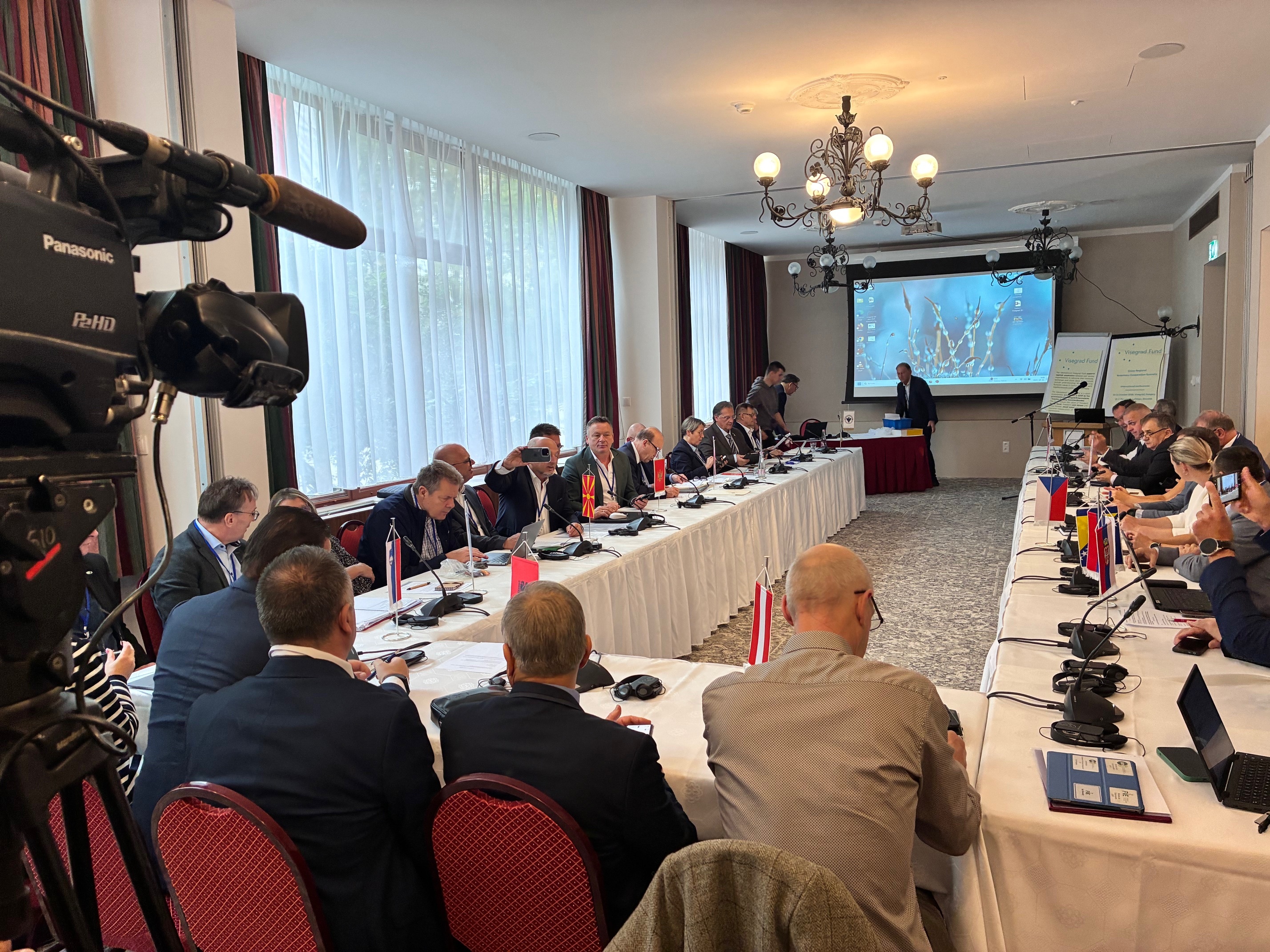The autumn meeting of the Visegrád Group, the cross-regional veterinary cooperation summit, was held in… Visegrád, Hungary and jointly chaired by Zsolt Pintér (Hungary) and Marek Kubica (Poland). The meeting was attended by delegates from Albania, Austria, Croatia, the Czech Republic, Germany, Greece, Hungary, Montenegro, North Macedonia, Poland, Serbia, Slovakia and Slovenia. Siegfried Moder, Piotr Kwiecinski (FVE) and Volker Moser (UEVP) were also present.
‘Lack of manpower, resources and support’
Delegates discussed the challenges of new and re-emerging diseases in in Central and Southeastern Europe, including sheep and goat plague, sheep pox (Greece, Albania); Newcastle disease, highly pathogenic avian influenza (Poland); anthrax (Croatia); bluetongue and African swine fever (throughout the region). Challenges include a lack of veterinary manpower, resources and political support for the veterinary profession.
Bureaucratic burden
‘When talking about European crisis prevention, we should think of our colleagues in protective suits at 40 °C, taking blood samples while farmers fight for their livelihoods,’ stressed UEVP President Volker Moser. ‘Vets are the backbone of animal health in Europe. They deserve respect – not only after a crisis, but before it happens.’ Many delegates noted an increased bureaucratic burden placed on veterinary practitioners. According to Dietmar Gerstner (Austria), ‘too much administration drains energy from the profession.’
‘Europe needs vets’
On a more positive note, some colleagues reported that their governments paid practitioners to help with disease eradication, such as Austria (€150/hour) and Germany (€1000/day). Others regretted that their authorities seemed to expect the same commitment, but without compensation or recognition. ‘Europe does not only need legislation on animal health but also vets who are willing and able to implement it,’ stressed Volker Moser. ‘Those who call for animal disease control should also finance, equip and give a voice to those who carry it out.’
And also…
- UEVP board member Jan Bernardy (Czech republic) was congratulated for his long-standing attendance since the first Visegrad meeting in 2013.
- Petra Šínová was announced as the new president of the Czech Veterinary Chamber.
- The spring 2026 Visegrád veterinary meeting will be held in Lučenec, Slovakia on 15-17 May.
